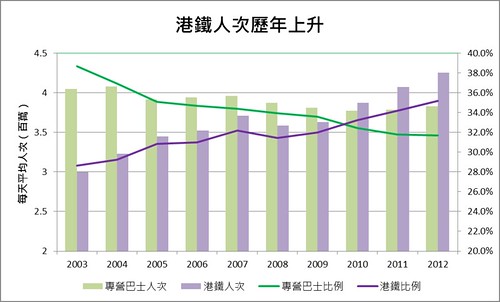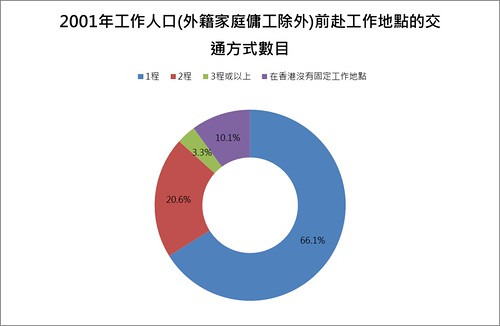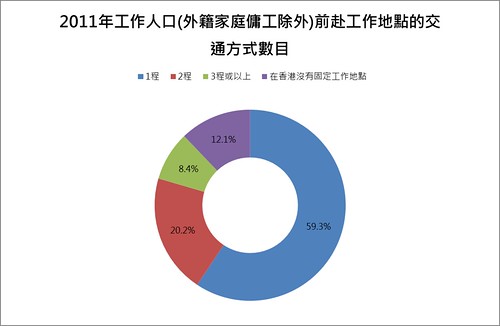For decades, Joseph Law, his 'Employer Association' and helper agencies have been lobbying the Hong Kong government to scrap reforms for domestic workers. Their demands are often met by the government, which has caused pay and conditions to actually worsen for the local helper community. During hearings at government headquarters, these opaque and unaccountable groups offer anecdotal evidence to back up their claims in contrast to the hard statistics cited by helper NGOs and numerous international bodies.
Below are our top 10 most shocking myths, claims and demands made by these groups at last Thursday's Manpower Panel hearing on domestic workers. You can read more about the meeting, or read the HK Helpers Campaign submission here.
1. IF WORKERS LIVE OUT, THEY MAY BECOME PREGNANT
Liberal Party youth committee member Harris Yeung warned that helpers may fall pregnant if allowed to live away from their employers…
Accidental pregnancy is a problem not amongst domestic workers, but amongst women in general worldwide. The solution is not to require all female employees to live with their employers. The proper route to prevent unwanted pregnancy is family planning education. Many affordable government social hygiene clinics are closed on Sundays when most helpers take their day off. Children can be conceived just as easily during the day as they can be at night. Further, there is zero evidence that more domestic workers will become pregnant if they have their own home.
Also, women who undertake any type of work have the freedom to become pregnant at any time. Article 16 of the Universal Declaration of Human Rights states that all persons "without any limitation due to race, nationality or religion, have the right to marry and to found a family." Employees in Hong are further guaranteed their right to have a child under the Employment Ordinance. To deny a domestic worker, through any means, the ability to have a child is to break Hong Kong law and deny them this human right.
2. LET EMPLOYERS CONFISCATE HELPER'S PASSPORTS
In a written submission, the Association of Hong Kong Agencies for Migrant Workers asked for employers to be exempt from the law…

Confiscation of travel documents is a widely recognised method human traffickers use to control their victims. The United Nations, The US Trafficking in Persons Report, The Palermo Protocol, and other organisations have criticised Hong Kong in tolerating this practice by employers and agents. No employer has the right to prevent the movement of a worker. Helper do not typically run away from a good working environment, thus it seems unfounded that an employer would ever need to keep a passport in a healthy work relationship.
The confiscation of a travel document only serves to give an employer complete control over their employee and limit their movements to such an extent that they cannot quit or leave a bad situation. It is also unreasonable to think that any overseas worker would willingly hand over their travel document. Suggesting they do so is coercion and an abuse of power by the employer.
3. EMPLOYERS SUFFER BECAUSE THEY HAVE TO PROVIDE HEALTH COVERAGE & INSURANCE
The General Chamber of Hong Kong Manpower Agencies Ltd based their entire written submission on the HK Helpers Campaign lobbying points. They stated…

As the employer of full time help, someone who hires a domestic worker must take out an insurance policy to cover personal liability as per the Employees' Compensation Ordinance (Cap. 282). This protects them from any personal liability should the worker be injured in their home.
Under the Standard Employment Contract, just as in any other employer/employee relationship, an employer of a domestic worker is responsible for providing free medical treatment if he/she is ill or suffers personal injury during the period of employment. This includes providing medical coverage should the worker become pregnant. The Hong Kong government strongly advises the taking out of an insurance policy to cover the costs of a domestic worker, and many options are available to limit the financial liability of an employer.

Peter Shiu of the Labour Party said employers suffer as they are often disturbed by their employer's loan sharks. He also claimed helpers resort to prostitution.
4. IF HELPERS 'LIVE OUT', THEY WILL TAKE UP PART TIME EMPLOYMENT
If you cannot adequately house another human within your home, then one should not hire one. Forcing workers to live in closets, on tables, and in bathrooms is inhumane and deprives people of their human dignity. For a domestic worker to take up paid employment outside the home of her sponsor family is illegal. However, it is also unlawful on the employers end to hire an illegal employee. Both parties bare liability.

Hong Kong Employers of Overseas Domestic Helpers Association chairman Joseph Law Kwan-din has campaigned for decades against giving helpers the freedom to live wherever they wish.
5. HELPERS MAY LEAVE POSITIONS FOR BETTER OPPORTUNITIES
The ability to choose an employer based on salary, work tasks and benefits, is fully reasonable and increases the chances that employees will remain happy with their working environment and will not leave it for a better opportunity. It is also reasonable for an employer to expect to pay more for a skilled worker or less for someone with little experience depending on their needs. The term 'job hopping' is little more than a term to describe a byproduct of what the rest of the capitalist world calls an informed labour force.
As detailed in Rob Connelly's op-ed in the SCMP, there is no evidence of helpers 'job hopping' in Hong Kong and zero financial incentive for a woman to undergo training, pay placement and agency fees, only to leave her employment. Giving domestic workers more than two weeks after leaving or being dismissed does not guarantee that they will move around from job to job, and it is certainly not a 'free pass'. Extending the two weeks workers have to seek new employment serves to allow workers to find alternative employment if their working conditions aren't good rather than having to face going home and explaining what happened to them.
6. AGENCIES SHOULD CHARGE EMPLOYERS LESS
From the General Chamber of Hong Kong Manpower Agencies Ltd written submission…

When any company hires an employee, there are labour costs that go into recruiting, interviewing, training, filing paperwork etc.- because an employee is an investment meant to add value to the work force. Recruitment agencies will understand how these costs are part of providing high value employees, although some personnel costs are the responsibility of the employer too, just as with any business. Global standards estimate that for a corporation to hire an employee, the cost falls between US$1,000-4,000, with some estimates at much more. One would expect to incur similar costs when hiring a domestic worker from overseas.
Currently, employees pay more for the privilege to work – via unfair and illegal agency fees – than employers do in order to hire them.
7. LET AGENCIES CHARGE MORE FEES FOR AIDING DISTRESSED WORKERS
A written submission from Well Shine agency demanded that agencies be allowed to charge more fees…

Despite already exorbitant placement fees, some agencies are pushing for even higher amounts, citing various reasons including costs associated with assisting workers in need. Some groups compare Hong Kong's policies to even more draconian legislation in places like Singapore. Since 1996, domestic migrant workers have seen their salary rise from $3,860 to $4,010 per month – well below inflation. This sum is a pittance when compared to increased cost of living and average inflation between 1-3% per annum over the past 18 years. If agencies would like to make more money, they can help push for domestic workers to receive the Statutory Minimum Wage (to which they are exempt), and help them to negotiate higher salaries.
8. CULTURAL DIFFERENCES CAUSE ABUSE
More from the written submission from Well Shine agency.

Frustrations over 'language issues' are commonly cited as reasons that some employees may resort to violence, especially amongst Indonesian workers whose English and Cantonese may not be strong. Different religious beliefs are also cited as a reason for abuse – for instance, Muslim women from Indonesia whose religion requires them to pray at certain times of the day.
Miscommunicated expectations and cultural issues are never a reason to resort to violence or break the law. Yet a 2012 Mission for Migrant Workers survey found that 58% of workers had faced verbal abuse, 18% had suffered physical abuse and 6% had been sexually abused.

Torture victim, Erwiana, last month. Image via AFP
9. EMPLOYEES HAVE 'DOWN TIME' THAT SHOULDN'T COUNT AS WORKING HOURS
From the General Chamber of Hong Kong Manpower Agencies Ltd written submission…

For employers concerned about 'down time' during the day, it would perhaps be advisable for them to hire part time help as opposed to full time. It is economically inefficient to employ someone full-time and not give them forty hours of work to accomplish. If someone is at work, whether or not they have tasks to accomplish, this is counted towards working hours.
Employers should state expected working hours, along with expected duties and accommodation, as per the Standard Employment Contract (ID 407). Furthermore, Article 24 of the Universal Declaration of Human Rights provides for "reasonable limitation of working hours". To keep parity with international standards, this would fall between 40-48 hours, not the 102+ hours domestic workers in Hong Kong claim to work.

10. WE SHOULD LOOK TO TAIWAN AND SINGAPORE FOR GUIDANCE
Hong Kong received a Tier 2 Ranking in the US Trafficking in Persons Report, indicating that it does not fully comply with efforts to end human trafficking, largely because of the governments' refusal to address the debt bondage and inhumane treatment of domestic workers. Some parties suggest that Hong Kong should look to Singapore for guidance, however the city-sate is also listed as Tier 2 because it is does not adequately protect migrant workers and is a destination for forced domestic labour. According to the report, in Taiwan "Some employers of foreign domestic workers and home caregivers forbid their employees to leave their residences, making them unable to seek help, which could indicate that they are at risk of being subjected to forced labour".

Ms Choi Chow Ning-ning of Hong Kong Home Services Association Limited advised the government to look to Singapore and allow agencies to increase fees.
Rather than a 'race to the bottom', Hong Kong should be an initiator of fair laws respecting of human rights, not trailing behind countries that also fail to recognise migrant workers basic equal rights.
Compiled by Meredith McBride & Tom Grundy





